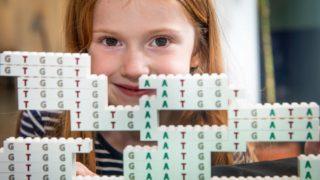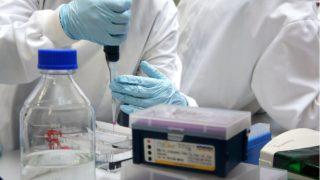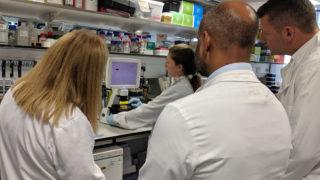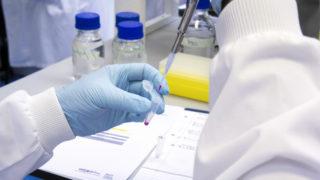Inspiring the scientists of tomorrow
3rd December 2019
A team of Barts Cancer Institute researchers from Professor Claude Chelala’s group took part in the NIHR Great Ormond Street Hospital Biomedical Research Centre Family Fun Day. The fun-filled afternoon provides an amazing opportunity for children, young people and their families to take part in fun, educational, hands-on activities and meet researchers.
Read moreFirst steps towards a vaccine for pancreatic cancer
26th November 2019
Researchers from Barts Cancer Institute and Zhengzhou University have developed a personalised vaccine system that could ultimately delay the onset of pancreatic cancer. The study reports the team’s work with a pre-clinical model using mice, and provides strong proof-of-concept for the creation of a vaccine for cancer prevention in individuals at high risk of developing this disease.
Read moreWorld Pancreatic Cancer Day 2019
21st November 2019
This World Pancreatic Cancer Day, hear from some of our researchers about what they are working on to help combat this devastating cancer type.
Read moreStepping behind the scenes
19th November 2019
Last month, Barts Cancer Institute’s Dr Bela Wrench hosted a session as part of the Bloodwise Lab Tour Programme, aimed at bringing current and potential supporters closer to research funded by the charity and to demonstrate the impact they can have in the fight against blood cancer.
Read moreSelf-sampling test detects cervical pre-cancer
7th November 2019
Researchers from the Centre for Cancer Prevention have developed a non-invasive test to detect cervical pre-cancer by analysing urine and vaginal samples women collect themselves.
Read moreLeading the next generation of radiotherapy research
4th November 2019
Cancer Research UK (CRUK) have today announced the launch of a new £56 million research network that will accelerate the development of advanced radiotherapy techniques in the UK. The network, named ‘RadNet,’ will pioneer the use of the latest technologies in world-first research projects with the aim of improving cancer survival by optimising and personalising radiotherapy.
Read more





